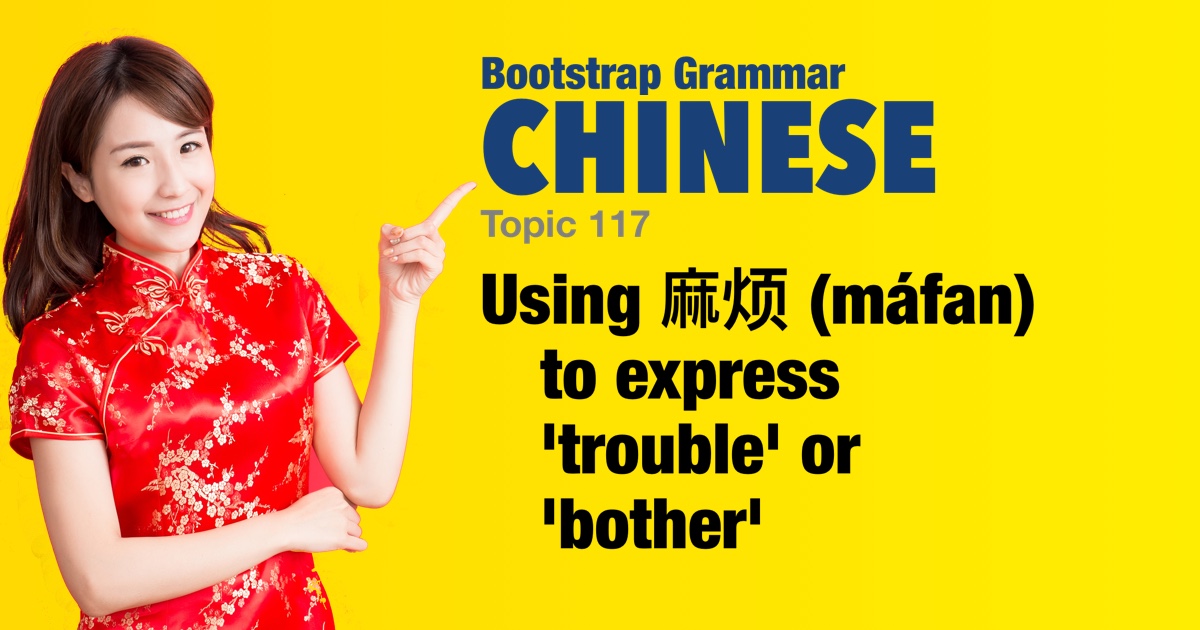Chinese grammar - Using 麻烦 (máfan) to express 'trouble' or 'bother' |
|||
|
|||
The Chinese, word 麻烦 (máfan) can mean 'trouble' or 'bother'. It is used to describe inconvenience. It is also often used to express inconvenience or to politely ask for help. — Used in this way, 麻烦你… means something like '(Can I) trouble you to…?'. |
| Examples: | |
|
这件事很麻烦。
zhè jiàn shì hěn máfan. This matter is very troublesome. |
|
|
对不起,给你添麻烦了。
duìbuqǐ,#gěi nǐ tiān máfan le. Sorry to trouble you.
|
|
|
这个问题很麻烦。
zhè ge wèntí hěn máfan. This problem is very troublesome. |
|
|
他总是给别人带来麻烦。
tā zǒngshì gěi biérén dàilái máfan. He always causes (brings) trouble for others.
|
|
|
我不想麻烦你。
wǒ bù xiǎng máfan nǐ. I don't want to bother you. |
|
|
麻烦你帮我一下。
máfan nǐ bāng wǒ yíxià. Could you please help me (a little)? |
|
|
麻烦给我看一下。
máfan gěi wǒ kàn yíxià. Could you please show me (a little)? |
|
|
麻烦你告诉我怎么做。
máfan nǐ gàosu wǒ zěnme zuò. Could you please tell me how to do it? |
|
|
麻烦你借我一支笔。
máfan nǐ jiè wǒ yì zhī bǐ. Could you please lend me a pen? |
|
|
麻烦你关一下门。
máfan nǐ guān yíxià mén. Could you please close (a little) the door? |
|
 |
|



